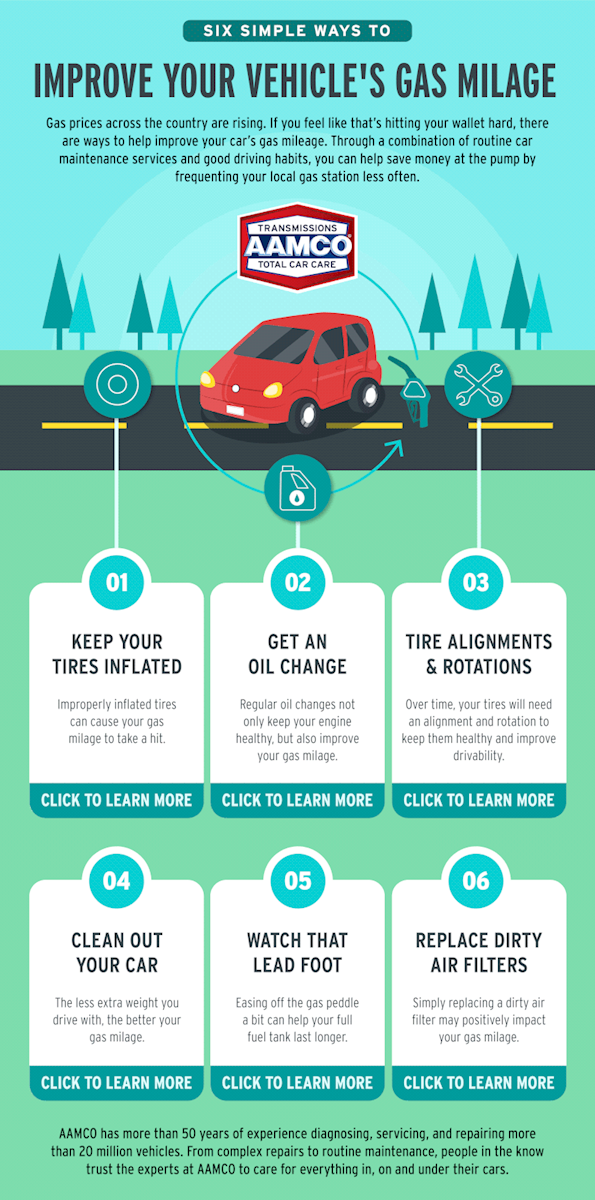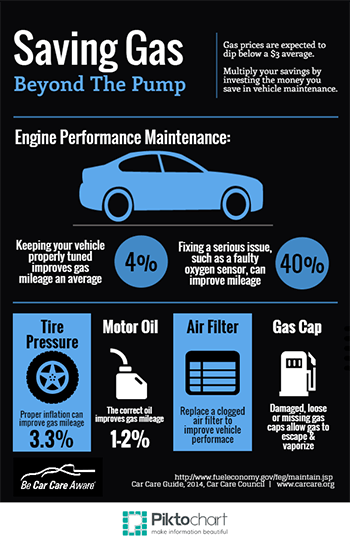Intro-
Looking for some tips For Improving Gas Mileage?
You’ve come to the right place! In this article, we’ll dive into some practical tips for improving gas mileage and getting the most out of every gallon.
Let’s face it, gas prices can be a real downer. But fear not, because by making a few changes to your driving habits and taking some simple maintenance steps, you can significantly improve your vehicle’s fuel efficiency. Say goodbye to those frequent and costly trips to the gas station!
Ready to rev up your gas mileage?
We’re about to share some top-notch tips that will have you driving smarter, not harder. From maintaining proper tire pressure to avoiding excessive idling, these strategies are easy to implement and will make a noticeable difference in your fuel consumption. So, let’s dive right in and uncover the secrets to maximizing your MPG (miles per gallon)!
Need tips for improving your gas mileage?
Follow these simple tips and start saving at the pump:
– Avoid aggressive driving and maintain a steady speed.
– Keep your tires properly inflated to reduce rolling resistance.
– Remove unnecessary weight from your car.
– Use cruise control on highways to maintain a consistent speed.
– Schedule regular maintenance to keep your engine running efficiently. These tips will help you maximize your fuel efficiency and save money on gas.

Source: pwmedia.net
Tips for Improving Gas Mileage: Unlocking Fuel Efficiency
In today’s world of rising fuel costs and environmental concerns, improving gas mileage has become a top priority for many drivers. Not only does it save money at the pump, but it also reduces our carbon footprint. Fortunately, there are several tips and techniques that can help maximize fuel efficiency. By implementing these strategies, you can make every gallon count and ensure a smoother ride for both your wallet and the planet.
1. Maintain Proper Tire Pressure
One of the simplest yet often overlooked ways to improve gas mileage is by keeping your tires properly inflated. Underinflated tires increase rolling resistance, which forces the engine to work harder and consume more fuel. Check your tire pressure regularly and maintain the recommended level specified by the manufacturer. By doing so, you can improve fuel efficiency by up to 3% and extend the lifespan of your tires.
It’s worth investing in a quality tire pressure gauge to ensure accuracy. You can find the recommended tire pressure in your vehicle’s owner manual or on a label located on the driver’s side doorjamb or inside the fuel filler door. Remember to measure tire pressure when the tires are cold, as heat from driving can increase pressure readings.
Proper tire maintenance also includes regular rotation and alignment. Uneven wear and misalignment can lead to increased rolling resistance and decreased fuel efficiency. Plan to have your tires rotated every 6,000 to 8,000 miles to ensure even wear and extend tire life.
2. Lighten the Load
Carrying unnecessary weight in your vehicle can negatively impact gas mileage. Extra weight puts additional strain on the engine, causing it to burn more fuel. Take a look at what you’re carrying around in your trunk or back seat and remove any non-essential items. Golf clubs, tools, and sports equipment can add up quickly and decrease fuel efficiency.
You should also avoid using your car as a storage space, especially for heavy items. They may not only increase fuel consumption but also hinder your ability to navigate and control the vehicle safely. Consider using storage bins or rooftop carriers when you need to transport larger items, and remove them when they are no longer needed to save fuel and improve aerodynamics.
Additionally, be mindful of the roof rack on your car. Even if it’s not in use, it adds unnecessary drag and decreases fuel efficiency. Remove roof racks when they’re not being utilized to optimize your vehicle’s aerodynamics and save on gas.
3. Practice Smooth and Efficient Driving
One of the most effective ways to improve gas mileage is by adopting smooth and efficient driving habits. Aggressive driving behaviors such as rapid acceleration, harsh braking, and excessive speeding can significantly increase fuel consumption. Instead, opt for a more relaxed driving style that focuses on maintaining a consistent speed and anticipating traffic patterns.
Avoid unnecessary idling, as idling for more than 30 seconds consumes more fuel than restarting the engine. If you’re going to be stopped for more than a minute, it’s more fuel-efficient to turn off the engine and restart it when you’re ready to move again.
Another tip is to utilize cruise control when driving on the highway. This helps maintain a steady speed and can decrease fuel consumption. Additionally, try to avoid rush hour traffic whenever possible as stop-and-go driving greatly reduces fuel efficiency.
4. Regular Maintenance is Key
To ensure optimal gas mileage, regular maintenance is essential. Schedule maintenance tasks such as oil changes, air filter replacements, and spark plug inspections as recommended by your vehicle’s manufacturer. A well-maintained engine operates more efficiently, resulting in improved fuel economy.
Regular oil changes are particularly important. Fresh oil reduces friction and allows the engine to run smoothly, reducing fuel consumption. Make sure to use the recommended grade of oil for your vehicle, and consider using a high-quality synthetic oil for enhanced performance.
Don’t neglect other important maintenance tasks such as replacing dirty air filters. A clogged air filter restricts airflow to the engine, causing it to work harder and burn more fuel. By regularly replacing the air filter, you can maintain optimal fuel efficiency and improve the overall performance of your vehicle.
5. Choose the Right Fuel
When it comes to fuel efficiency, choosing the right fuel can make a difference. Most vehicles are designed to run on regular unleaded gasoline, so there’s no need to spend extra money on premium fuel unless specifically recommended by the manufacturer.
However, if you drive a high-performance vehicle that requires premium fuel, using regular gasoline can actually harm your engine’s performance and fuel efficiency. Always check your vehicle’s owner manual or consult with a trusted mechanic to determine the appropriate fuel for your specific vehicle.
In addition to choosing the right fuel, it’s essential to purchase it from reputable stations. Gasoline quality can vary, and low-quality fuel can contain impurities that can negatively impact fuel efficiency and vehicle performance. Stick to well-known brands and stations with a reputation for providing quality fuel.
6. Optimize Your Aerodynamics
Improving aerodynamics can have a noticeable impact on fuel efficiency. When driving at high speeds, aerodynamic drag becomes a significant factor in fuel consumption. By minimizing drag, you can reduce the amount of energy required to propel your vehicle forward and ultimately improve gas mileage.
To optimize aerodynamics, keep your windows closed when driving on the highway. Open windows create a drag-inducing effect that can increase fuel consumption. However, using the air conditioning at high speeds can also decrease fuel efficiency, so finding a balance is crucial.
If you’re looking to make a more substantial investment, consider adding aerodynamic enhancements to your vehicle. These can include aftermarket spoilers, low-profile tires, or even modifying the bodywork to reduce drag. While not necessary for every driver, these modifications can contribute to improved fuel efficiency for those seeking maximum results.
Tips For Improving Gas Mileage: Advancements in Technology
As the world continues to prioritize fuel efficiency and environmental sustainability, automotive technology is constantly evolving to meet these demands. Here are three key advancements that are shaping the future of fuel efficiency:
1. Hybrid and Electric Vehicles
Hybrid and electric vehicles are becoming increasingly popular as they offer excellent fuel efficiency and reduced emissions. These vehicles combine a traditional internal combustion engine with an electric motor, allowing for improved fuel economy and decreased reliance on fossil fuels. Electric vehicles, on the other hand, run solely on electric power and produce zero emissions.
With advancements in battery technology and increased charging infrastructure, hybrid and electric vehicles are becoming more accessible and practical for everyday use. These vehicles not only provide significant savings on fuel costs but also contribute to reducing greenhouse gas emissions, making them a crucial part of the future of transportation.
2. Improved Engine Technologies
Automakers are continuously working on developing more efficient engine technologies to improve fuel economy. Direct injection, turbocharging, and variable valve timing are examples of advancements that enhance engine efficiency and performance. These technologies optimize the combustion process, resulting in better fuel utilization and reduced emissions.
Engine stop-start systems are also gaining popularity. These systems automatically shut off the engine when the vehicle is idle, such as at traffic lights or in heavy traffic. When the driver releases the brake or engages the clutch, the engine restarts seamlessly. This feature helps conserve fuel by reducing unnecessary idling time.
3. Improved Lightweight Materials
Reducing the weight of vehicles is a crucial factor in improving fuel efficiency. Lightweight materials such as aluminum, carbon fiber, and high-strength steel are being used to design lighter and more fuel-efficient cars. These materials offer the same level of safety and structural integrity as traditional materials while significantly reducing vehicle weight.
Less weight means less energy is needed to propel the vehicle, resulting in improved fuel economy. Additionally, lighter vehicles can also enhance handling and performance, providing an overall better driving experience.
Conclusion
Improving gas mileage is not only beneficial for your wallet, but it also helps mitigate the impact of transportation on the environment. By following these tips and incorporating the latest advancements in technology, you can make a significant difference in your fuel efficiency. From maintaining proper tire pressure to adopting efficient driving habits, every small change adds up to maximize your mileage. Embrace these tips and be a responsible driver, doing your part to conserve fuel and preserve the planet for future generations.
Key Takeaways: Tips for Improving Gas Mileage
- Keep your tires properly inflated to maximize fuel efficiency.
- Drive at a steady speed and avoid unnecessary acceleration and braking.
- Remove excess weight from your vehicle to improve gas mileage.
- Maintain regular vehicle maintenance, including oil changes and air filter replacements.
- Consider carpooling or utilizing public transportation to reduce your overall fuel consumption.
Frequently Asked Questions
Welcome to our FAQ section where we address common questions about improving gas mileage. If you’re looking for tips on how to make your vehicle more fuel-efficient, you’ve come to the right place. Read on for helpful answers to key questions.
Q: How can I improve the gas mileage of my car?
A: There are several ways to improve the gas mileage of your car. First, make sure to maintain your vehicle regularly by getting tune-ups and oil changes, as well as checking tire pressure. Inefficient maintenance can lead to increased fuel consumption. Additionally, avoid aggressive driving habits, such as rapid acceleration and hard braking, as they can significantly reduce fuel efficiency. Another tip is to reduce excess weight in your car by removing unnecessary items, as extra weight can cause your vehicle to use more fuel. Lastly, consider using cruise control on highways to maintain a consistent speed and optimize fuel usage.
Remember, every car is different, so it’s important to experiment with these tips and find what works best for your vehicle. By adopting these practices, you should be able to see improvements in your gas mileage and save money at the pump.
Q: Does the type of fuel I use impact the gas mileage of my vehicle?
A: Yes, the type of fuel you use can have an impact on your vehicle’s gas mileage. While most cars are designed to run on regular unleaded gasoline, some high-performance and luxury vehicles may require premium gasoline. However, if your car does not specifically require premium fuel, using it may not provide any additional benefits. It’s always best to consult your vehicle’s owner manual or check with the manufacturer to determine the recommended fuel type for optimal performance and efficiency. Using higher-octane fuel than necessary can be costlier and may not provide any noticeable improvements in gas mileage.
Furthermore, it’s essential to purchase fuel from reputable stations to ensure quality. Poor quality fuel can contain contaminants that can negatively affect your car’s performance and fuel efficiency. Always choose a reliable gas station that maintains their fuel storage tanks and regularly tests their fuel for quality.
Q: Does idling my car waste fuel?
A: Yes, idling your car can waste fuel. When your car is idling, it’s still burning fuel without moving, which results in zero miles per gallon. In fact, idling for just 10 minutes can waste a considerable amount of fuel. If you anticipate being stationary for more than a minute, it’s more fuel-efficient to turn your engine off rather than letting it idle. Modern cars are designed to handle frequent startups, so you don’t need to worry about damaging your engine by turning it off and on. To minimize fuel wastage, try to avoid unnecessary idling, especially when parked or waiting for an extended period of time.
Keep in mind that there are some situations where idling is necessary, such as when you’re stuck in traffic or waiting at a stoplight. However, if you find yourself idling frequently, it’s worth exploring alternative practices, such as carpooling, to reduce time spent idling and overall fuel consumption.
Q: Can changing my driving habits help improve gas mileage?
A: Absolutely! Changing your driving habits can have a significant impact on your gas mileage. One important habit to adopt is driving at a consistent speed, especially on highways, as it helps optimize fuel efficiency. Avoid unnecessary acceleration or abrupt braking, as these actions waste fuel. Instead, try to anticipate traffic conditions and adjust your speed accordingly to maintain a steady pace.
Another tip is to avoid excessive use of the air conditioning system, as it can increase fuel consumption. If possible, use the car’s ventilation system or open windows to cool down. Furthermore, combining multiple short trips into a single longer trip can also improve gas mileage by minimizing cold starts. When the engine is cold, it uses more fuel to reach its optimal temperature. Lastly, reducing speed can significantly improve fuel efficiency, as driving at higher speeds increases wind resistance and consumes more fuel. By making these small adjustments to your driving habits, you can achieve noticeable improvements in gas mileage.
Q: Does proper tire maintenance affect gas mileage?
A: Yes, proper tire maintenance plays a crucial role in gas mileage. It’s essential to regularly check your tire pressure and ensure it’s at the recommended level. Underinflated tires create more rolling resistance, making your car work harder and consume more fuel. On the other hand, overinflated tires can result in reduced traction and uneven wear, negatively impacting both safety and fuel efficiency.
In addition to maintaining the correct tire pressure, it’s important to keep your tires properly aligned and balanced. Misaligned or unbalanced tires can cause uneven tire wear and increase rolling resistance, leading to a decrease in gas mileage. Regularly inspect your tires for signs of wear and have them rotated as recommended by the manufacturer to ensure even tire wear. By taking care of your tires and keeping them in good condition, you can maximize fuel efficiency and prolong their lifespan.

Source: dunntire.com
How to Increase Gas Mileage in Your Car
Summary
Want to save money on gas? Here are some easy tips for improving your gas mileage:
1. Drive at a moderate speed, not too fast or too slow, to maximize fuel efficiency.
2. Keep your tires properly inflated because low tire pressure can decrease gas mileage.
3. Avoid unnecessary weight by removing heavy items from your car.
4. Use cruise control on the highway to maintain a consistent speed and save gas.
5. Don’t idle your car for too long; turn it off if you’re going to be parked for a while.
6. Regularly maintain your vehicle by getting tune-ups, oil changes, and air filter replacements.
7. Plan your trips efficiently to avoid unnecessary driving and save fuel.
By following these simple tips, you can improve your gas mileage and make your wallet happy. So, start saving today!
